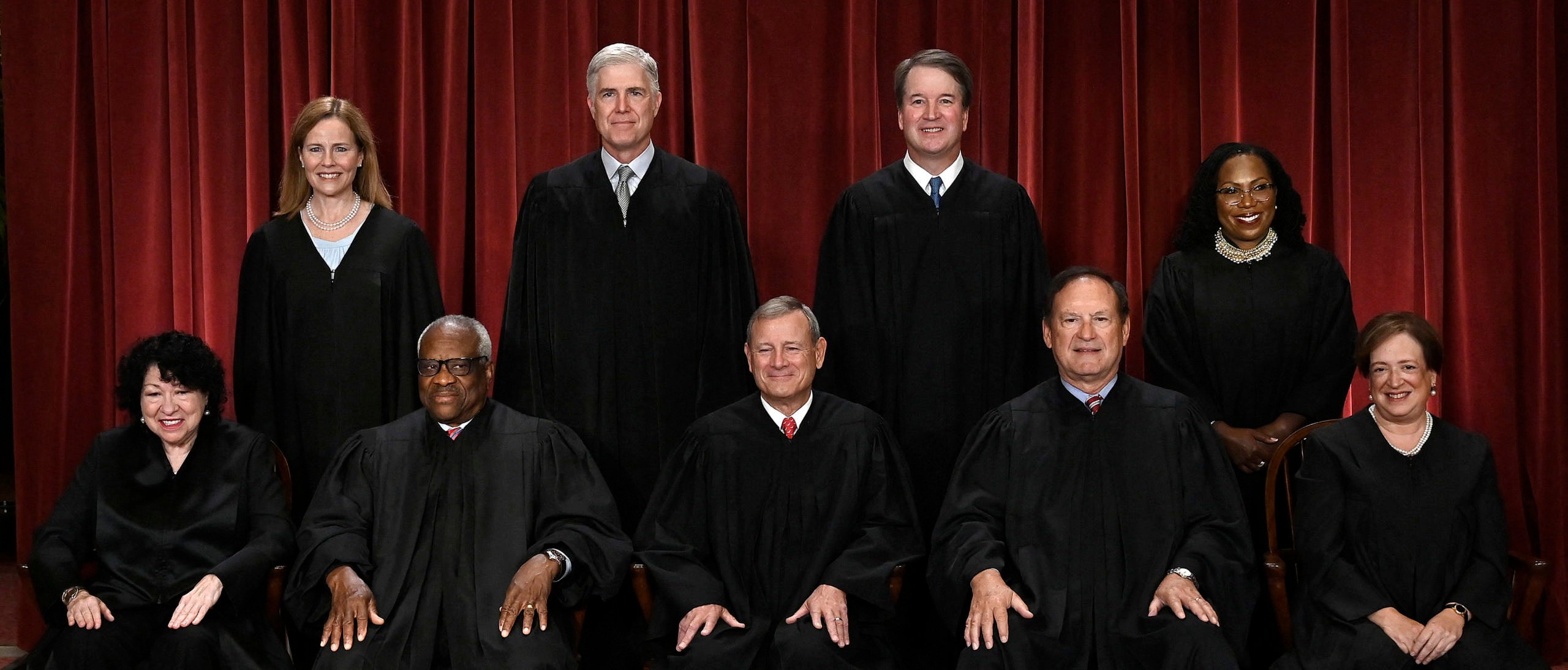Chief Justice John Roberts declined to appear before the Senate Judiciary Committee Tuesday after Chair Dick Durbin invited him to speak on the Supreme Court’s ethical standards.
Durbin sent a letter to Roberts on Thursday requesting he appear before the committee at a May 2 hearing considering a Supreme Court ethics code, which was prompted by a report alleging Justice Clarence Thomas violated ethics rules in failing to disclose expense-paid trips he accepted from billionaire friend Harlan Crow. Roberts declined the invitation Tuesday, noting it is “exceedingly rare” for a chief justice to testify, “as one might expect in light of separation of powers concerns.”
Only two chief justices have testified before Congress on matters other than appropriations or nominations, Roberts noted. Chief Justice William Howard Taft testified in 1920, and Chief Justice Charles Evans Hughes testified in 1935 — both on “routine matters of judicial administration” over the lower courts. (RELATED: Democrats May Be Sidestepping A Key Legal Question In Their Bid To Impose Ethics Rules On SCOTUS, Experts Say)
While Roberts’ predecessor Chief Justice William Rehnquist appeared before House committees on two occasions, Roberts notes it was to discuss “mundane topics”; first, to share his views on the federal civil service system with the House Committee on Post Office and Civil Service, and second, to discuss the John Marshall Commemorative Coin Act with the House Financial Services Committee.
“Congressional testimony from the head of the Executive Branch is likewise infrequent,” Roberts said. “According to the United States Senate website, no President has ever testified before the Senate Judiciary Committee, and only three Presidents (in 1862, 1919, and 1974) have testified before any Congressional committee.”
Roberts did include a statement clarifying the Supreme Court’s ethics principles and dispelling “common misconceptions” in his letter, which was signed by all nine justices.

TOPSHOT – Justices of the US Supreme Court pose for their official photo at the Supreme Court in Washington, DC on October 7, 2022. – (Seated from left) Associate Justice Sonia Sotomayor, Associate Justice Clarence Thomas, Chief Justice John Roberts, Associate Justice Samuel Alito and Associate Justice Elena Kagan, (Standing behind from left) Associate Justice Amy Coney Barrett, Associate Justice Neil Gorsuch, Associate Justice Brett Kavanaugh and Associate Justice Ketanji Brown Jackson. (Photo by OLIVIER DOULIERY / AFP)
“The Justices, like other federal judges, consult a wide variety of authorities to address specific ethical issues,” the justices’ wrote in their statement. “They may turn to judicial opinions, treatises, scholarly articles, disciplinary decisions, and the historical practice of the Court and the federal judiciary. They may also seek advice from the Court’s Legal Office and from their colleagues.”
The statement goes on to address financial disclosures and recusal standards, noting there have been “approximately 200 recusals per year at the certiorari stage and a few at the merits stage as well.”
While not bound by the Judicial Conference instituted by Congress to manage the lower courts in 1922, the statement says the Court voluntarily adopted a resolution to follow Judicial Conference Regulations in 1991, which means they follow its financial disclosure requirements.
The justices end by addressing safety, noting that judges at all levels “face increased threats to personal safety” that are “magnified” for Supreme Court justices.
“Recent episodes confirm that such dangers are not merely hypothetical,” the statement says. After the Court overturned Roe v. Wade last summer, pro-abortion advocates protested for months outside of conservative justices’ homes, and one man attempted to assassinate Justice Brett Kavanaugh.
“Security issues are addressed by the Supreme Court Police, United States Marshals, state and local law enforcement, and other authorities,” it continues. “Matters considered here concerning issues such as travel, accommodations, and disclosure may at times have to take into account security guidance.”
All content created by the Daily Caller News Foundation, an independent and nonpartisan newswire service, is available without charge to any legitimate news publisher that can provide a large audience. All republished articles must include our logo, our reporter’s byline and their DCNF affiliation. For any questions about our guidelines or partnering with us, please contact licensing@dailycallernewsfoundation.org.












